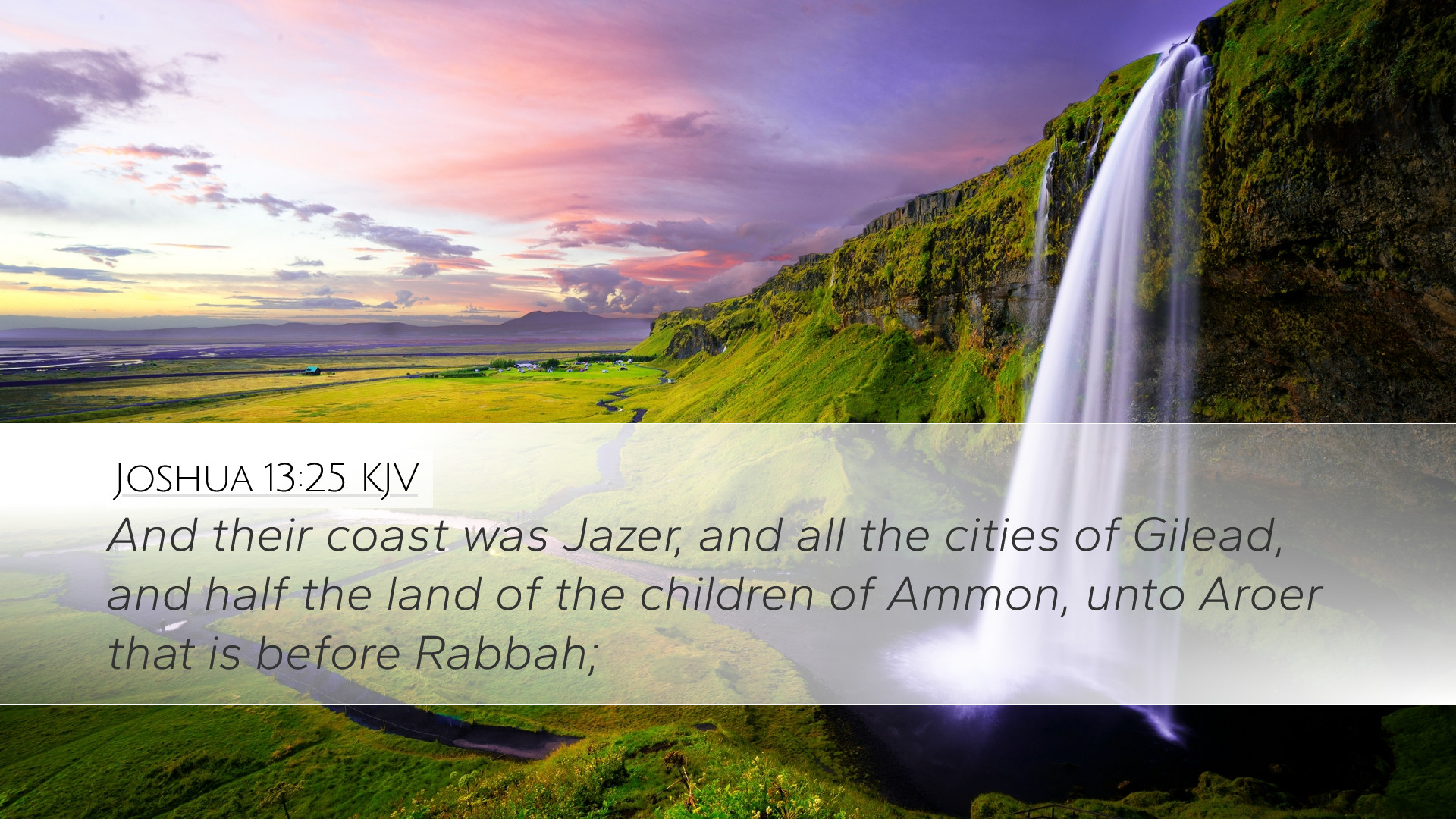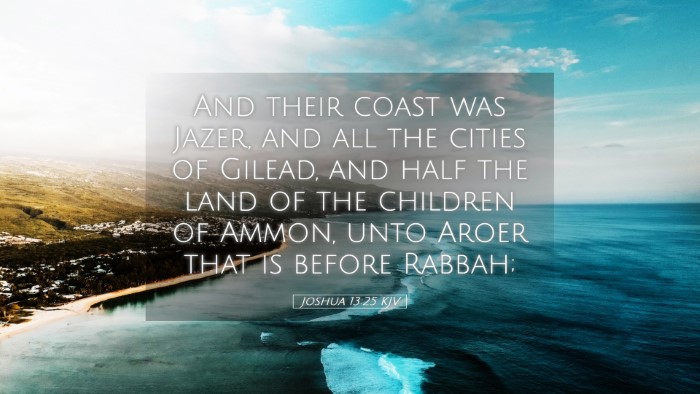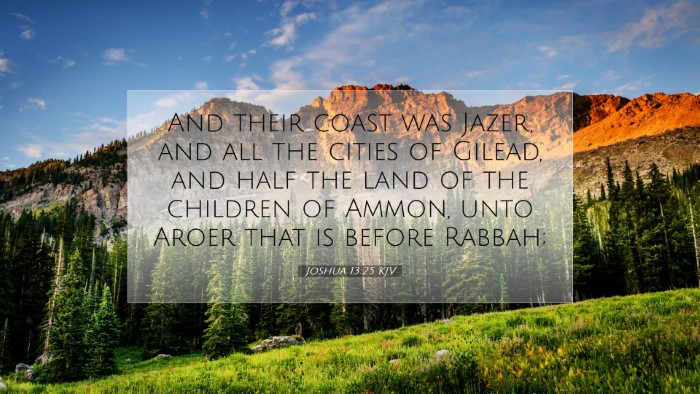Commentary on Joshua 13:25
Bible Verse: "And half Gilead, and the cities thereof, and the coast of the Geshurites and Maacathites, which was called the land of giants." (Joshua 13:25)
Introduction
Joshua 13:25 provides a glimpse into the distribution of land among the tribes of Israel, detailing the territories allocated specifically to the half-tribe of Manasseh. Understanding this passage not only involves geographical analysis but also theological reflection on God's promises and the fulfillment of His covenant with Israel. Through the insights provided by renowned commentators, we will explore the significance of this verse in detail.
Contextual Background
The book of Joshua serves as a historical record of the Israelites' conquest and settlement in the Promised Land. This chapter marks a transition in the narrative, as the land is being divided among the tribes following their military victories. It is crucial to appreciate the historical and cultural context of this verse to understand its implications fully.
Insights from Commentaries
Matthew Henry's Commentary
Henry emphasizes the sovereignty of God in directing the boundaries and the inheritance of the tribes. He notes that the land of Gilead, with its cities, is significant, not merely in its geographical extent but in its representation of God's faithfulness to His people. The lands of the Geshurites and Maacathites, often associated with formidable inhabitants—the giants—symbolize challenges that the Israelites would face, suggesting that God's promises come with responsibilities and struggles.
Albert Barnes' Notes on the Bible
Barnes points out that the division of land reflects God's meticulousness in fulfilling the promise made to the patriarchs. He elaborates on the mention of the “land of giants,” indicating the historical presence of the Rephaim, a race feared for their size and strength, further illustrating the power dynamics at play in the land of Canaan. This acknowledgment serves as a reminder that, despite the daunting obstacles, God has empowered His people to inherit the land designed for them.
Adam Clarke's Commentary
Clarke offers a detailed examination of the geographic references within the verse. He clarifies that the territory was replete with fortified cities which were essential for the defense of the Israelite community. He also suggests that the mention of specific groups—the Geshurites and Maacathites—highlights the need for the Israelites to remain vigilant and interactive with their environment to secure their inheritance. Clarke further remarks on the continuance of worship and allegiance to God, integrated into the lifestyle of the inhabitants of these lands.
Theological Reflections
In examining Joshua 13:25, it is vital to reflect on the broader theological themes present within the verse: God's guidance, the fulfillment of His promises, and the challenges believers face. Commentators agree that this distribution of land reflects a tangible fulfillment of divine promises but also serves as a metaphor for the spiritual battles that believers encounter.
Applications for Pastors and Theologians
- Faithfulness in Leadership: Pastors can draw upon this passage to teach the importance of faithfulness to God’s directives in leadership roles, emphasizing the need for careful consideration of God's guidance in decision-making.
- Confronting Challenges: The challenges associated with the land of giants can serve as a microcosm for the struggles faced in contemporary ministry; confronting modern 'giants' requires reliance on God.
- The Nature of God's Promises: The fulfillment of the land promises illustrates the importance of recognizing God’s timing and the faith required in waiting on His provisions.
Conclusion
Joshua 13:25 is not merely a historical account of land distribution but a profound testament to God's faithfulness and the realities of life as His covenant people. By engaging with the insights of classical commentators, we are reminded of the continual relevance of Scripture in guiding our understanding of God’s operations in the world. As the people of Israel were called to take possession of their inheritance, so are believers today called to lay claim to the spiritual inheritance made possible through Christ.


